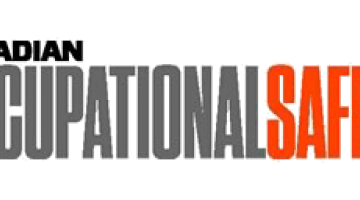Workers' compensation and benefits policy
Workers' compensation is a form of insurance providing wage replacement and medical benefits to workers injured in the course of their employment. Eligibility for, and awarding of, benefits to injured workers are determined by workers’ compensation boards, which are funded through employer premiums. IWH research explores trends in compensation benefits, including benefit adequacy and equity, as well as the effects of compensation policy design on injury and illness prevention.
Featured

Research Highlights
Severe pain, not pressure to return to work or lack of accommodation offer, linked to opioid use post-injury
An IWH study found that among a group of injured workers in Ontario, those who experienced severe pain were more likely to use opioids than those who had no or only mild pain.
Published: February 12, 2025

Impact case study
Following reports by IWH and others, B.C. amends the law to strengthen protections against claim suppression
After an IWH study filled a research gap on claim suppression in B.C. and helped make the case for change, the province amended legislation to strengthen protections against the practice.
Published: July 6, 2023

At Work article
Poor interactions with case managers linked with risk of mental illness later on
A new Ontario study finds face higher risks of serious psychological distress among injured workers who report not being treated with respect or not given the information they need in their interactions with case managers.
Published: March 2022

At Work article
Over a third of work-related ER visits in Ontario don’t show up as WSIB claims
About 35 to 40 per cent of emergency department visits in Ontario for the treatment of work-related injuries and illnesses don't show up as workers' compensation claims—indicating a level of under-reporting that's consistent with previous estimates.
Published: March 2022
Journal article
Journal article
Language accommodations in workers' compensation: comparing Ontario and Quebec
Published: New Solutions, January 2022

IWH in the media
Less than half of injured workers submit comp claims: Report
Less than half who reported missing two or more workdays as a result of an injury or disease submitted a claim to WorkSafeBC, according to a report from Institute for Work & Health. As Jim Wilson reports, just over half (53.7 per cent) did not submit a claim to WorkSafeBC and a quarter (26.7 per cent) reported that they received wage continuation from their employer or their workplace sick leave plan.
Published: Canadian Occupational Safety, December 2021

At Work article
Study probes factors behind poorer health, lower employment in injured workers’ post-claim experience
What are the work and health outcomes of injured workers after they no longer receive workers' compensation benefits or services? A study at IWH sets out to explore this little understood aspect of the post-injury experience.
Published: November 2021
IWH Speaker Series
IWH Speaker Series
Estimating the nature and extent of claim suppression in British Columbia's workers' compensation system
To what extent are workers in British Columbia pressured or induced to not report or claim benefits for their work-related injuries and illnesses? A study on the nature and extent of claim suppression in B.C. was recently conducted by Institute for Work & Health and Prism Economics and Analysis. In this presentation, study co-leads Dr. Ron Saunders and John O'Grady share what they found.
Published: September 2021
Journal article
Journal article
Cohort profile: the Ontario Life After Workplace Injury Study (OLAWIS)
Published: BMJ Open, September 2021

IWH in the media
Health researchers dig into B.C. injury claims
Are work injury claims in B.C. being suppressed, under-claimed or misrepresented? The Institute for Work and Health (IWH) recently collaborated with Prism Economics and Analysis to conduct a study to find out. They concluded the rate of claim suppression of work-related injury or disease in B.C. is in the range of 3.7 to 13 per cent. They also found that the incidence of claim suppression appears to be higher where the employer has created a bonus plan that rewards employees keep a workplace incident-free.
Published: Journal of Commerce, July 2021
Journal article
Journal article
Age differences in work-disability duration across Canada: examining variations by follow-up time and context
Published: Journal of Occupational Rehabilitation, June 2021
Project
Project
Ontario Life After Work Injury Study: Understanding the long-term recovery and labour market outcomes of injured workers in the shadow of COVID-19
Building on IWH's original Ontario Life After Work Injury Study (OLAWIS), IWH is looking in particular at the long-term outcomes of people who were recovering and returning to work during the early days of the COVID-19 pandemic.
Status: Ongoing